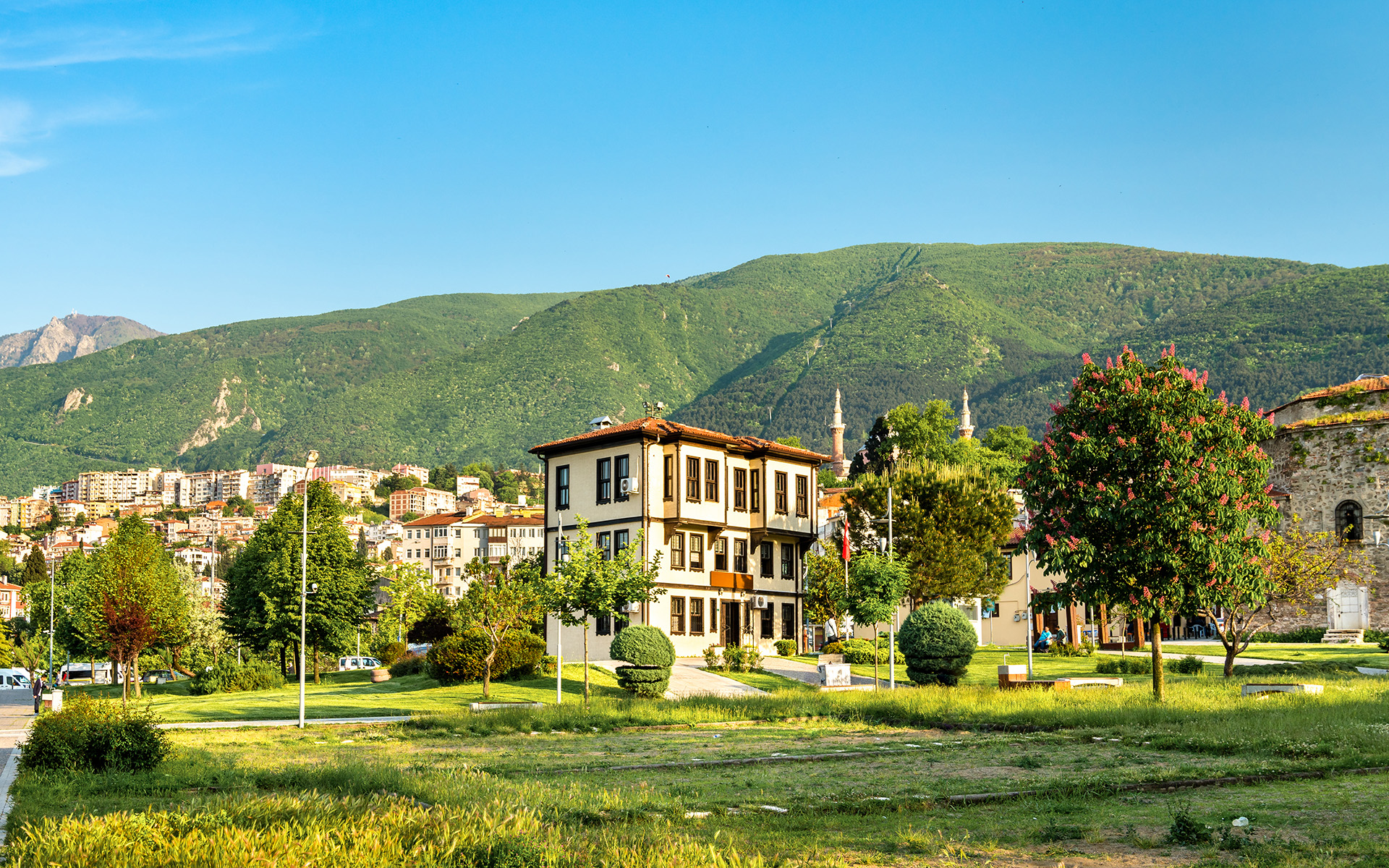With a centuries-old industrial base, Bursa now benefits from multinationals nearshoring production in response to global supply chain de-risking.
City Class Score
| Commercial Hubs | |
| Export Champions | |
| Mobility Connectors | |
| Climate Resilient |
Corporate HQs, MNC presence, branded outlets, hotels, manufacturing, start-up ecosystem,
transport linkages, population, and income.
Go to the class information
Manufacturing, industrial parks, export share and share change by category, air and port
infrastructure, freight time to market, trade agreements, and expert interviews.
Go to the class information
Passenger traffic, flight connectivity, air-cargo flights, port infrastructure, container
ship sailings, and major road networks.
Go to the class information
Coastal and river flooding, extreme rain, extreme heat and humidity, cyclones, and water
scarcity.
Go to the class information
Nestled among green mountains and not far from the busy metropolis of Istanbul,
Bursa has a long industrial pedigree. The city was a center of silk production as far back as
Byzantine Emperor Justinian’s rule in the sixth century, and potentially even earlier, given its
location on the historic Silk Road. It has long served as a stopping place for travelers and
merchants heading to the East. The famed Moroccan traveler Ibn Battuta passed through as he
journeyed to India and China. His 1355 book “The Rihla” described the city’s bazaars as “admirably
planned,” with “each craft having a bazaar of its own.”
Bursa’s modern industrial history
predates China’s entry into the World Trade Organization in 2001, but the city struggled to compete
with China’s hyper-efficient manufacturers and explosive export growth. Nevertheless, Bursa is
benefiting once again as multinationals seek to move production closer to their largest markets — in
this case, Europe — in response to global supply chain disruption and the need for resilience.
Sourcing executives recognize that the city and country are natural options. While Bursa isn’t the
only one of Turkey’s industrial cities that rank high on our index, it is a national leader.
A tour of Bursa’s industrial districts features automotive, textile, food processing,
machinery, and chemicals factories. The city is home to the headquarters of 32 of the country’s
largest companies, including domestic automotive champions such as Karsan and Coskunoz Holding. It
also is a hotspot for global players. The German industrial giant Bosch has multiple factories there
producing automotive parts. The Swiss food and drink multinational Nestlé produces a range of
confectioneries in its local factories. Major Chinese players are also arriving, with one of the
country’s leading battery manufacturers, Farasis Energy, having already invested in the city, and
Chinese electric vehicle players showing interest.
Bursa ranks high as both a global and
Middle Eastern export champion due to its proximity to Europe, with road freight between the city
and Frankfurt taking just two days. Bursa also has easy access to major ports in Gemlik and
Istanbul, as well as air cargo at Istanbul’s international airport, all providing manufacturers a
wealth of logistics options. The country’s customs union with Europe is also a major attraction for
foreign investors, along with smaller free trade agreements with the Gulf Cooperation Council and
South Korea, all contributing to the country’s high ranking in our index.

